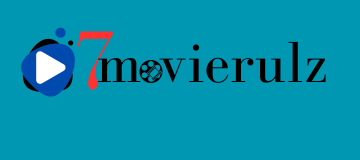Historical Odds: How Betting Lines Have Changed Over Decades
The way betting lines and odds are set has changed big time over the years. Now, if you want to enjoy success, you need to know how these changes happened. All this data shows what affects the odds today, even at BizzoCasino.
How Did Sports Betting Even Begin?
Sports betting was mostly unregulated back in the 1900s. Local bookmakers set odds based on instincts and a little bit of statistical analysis. Betting was mainly focused on popular sports like horse racing and boxing. Lines were created through community discussions. This led to big differences in odds between bookmakers because there were no standard methods.
As professional sports leagues became more popular, the need for better betting systems grew. Bookmakers started using simple statistical models to set odds. They would consider factors like team performance and past results. As you would expect, the available data was very limited. Not to mention, the methods they used were very basic compared to what we have today.
Everything Changed with Las Vegas
The legalization of sports betting in Nevada in the 1930s was a major turning point for betting lines. Las Vegas became the center of sports betting, and sportsbooks started to appear. This change led to a more organized way of setting odds. Now, they are using better statistical methods and data analysis.
During this time, bookmakers understood the need to balance bets on both sides. They began using a more mathematical approach to create odds. They started taking into account not just team statistics but also public opinion and betting trends. This marked the start of a more professional betting industry, where odds were adjusted based on the bets coming in and how people viewed the games. And now, everyone flocks to Sin City to enjoy in-person gambling and betting as they would do online at Bizzo Casino.
Data Analytics Changed the Game
In the late 20th century, data analytics transformed sports betting. They started using this information to create more accurate and flexible betting lines.
Soon, sportsbooks began using advanced statistical models that considered various factors. These included things like player injuries, weather, and even social media trends. This shift to data-driven decision-making helped bookmakers set odds more precisely. As a result, it started reducing risk and increasing profits.
The Impact of Online Betting
The rise of online betting changed how odds are set and adjusted. Sportsbooks had to adjust their lines to match various online betting habits.
The speed of online betting also changed how odds were updated. In real-time betting, odds could change quickly based on new bets, creating a more dynamic market. Bettors started expecting faster adjustments. So, sportsbooks responded with algorithms that allowed for immediate changes based on activity.
Technology and Machine Learning
Technology has further changed the sports betting scene. Many sportsbooks now use machine learning and AI to improve the accuracy of their odds. These technologies can analyze large amounts of data in real time. In fact, they can spot patterns and trends that human bookmakers might miss.
Modern algorithms can evaluate statistical data, team morale, coaching changes, and player psychology. This leads to more detailed odds that take into account a wide range of influences on a game. As a result, the betting market has become more responsive and informed than ever before.
Cultural Shifts and Legal Changes
Cultural attitudes toward gambling have changed too, especially with recent laws. As more states adopted legal sports betting, competition grew. This led sportsbooks to innovate their offerings. This included new betting options like prop bets and live betting, which made odds-making more complex.
Betting Exchanges and Odds Formation
When betting exchanges emerged, it completely changed how odds are set. As you know, when it comes to traditional sportsbooks, the bookmaker decides the odds. But on the other hand, betting exchanges have another method of doing this. They allow users to bet against each other, creating their own markets. To put it simply, supply and demand determine prices rather than a central authority.
Odds change in real time based on the amount of money being bet. This dynamic environment leads to a more accurate reflection of public sentiment and market trends. Thanks to this, bettors can see and respond to each other’s actions. The option to place lay bets—betting against an outcome—adds even more complexity. It ends up giving bettors more strategies to choose from.
The transparency of betting exchanges makes historical odds data easier to access. Thanks to this, bettors get to analyze trends and create informed strategies. This shift towards a more open odds-making process has challenged traditional sportsbooks. In fact, it has given bettors greater control over their betting experiences.
Historical Influence of Major Sporting Events
Events like the Super Bowl, World Cup, and Olympics can influence betting lines big time. This is because there are large amounts of money wagered. This often forces sportsbooks to adjust their lines so they can balance the bets and reduce risk.
As the Super Bowl approaches, betting lines can shift due to factors like team performance, injuries, and media coverage. Public opinion can heavily favor popular teams or star players. This ends up prompting sportsbooks to change odds to guard against potential losses.
These major events often bring new betting options, such as prop bets, which complicate the odds-making process. During this time, you need to be studying how the odds have changed during these events. Then, bettors can learn about the strategies for handling high-stakes betting scenarios.
The Role of Social Media in Shaping Betting Lines
Social media has become a huge part of sports betting. Let’s put it into perspective. So you follow a famous analyst who says something positive about a certain team or player. You might notice that this positive review can lead to an increase in certain types of wagers. This ends up prompting sportsbooks to adjust their lines to reflect this increased interest. Similarly, news about injuries or team changes can spread fast on social media.
Influencer culture also affects betting lines. When popular figures endorse particular teams or betting strategies, their followers may rush to place bets.
The Evolution of Prop Bets and Their Impact on Odds
Prop bets have changed a lot over the past few decades. Now, they have expanded to cover a wide range of options, from player statistics to in-game events. This growth has attracted new bettors and changed how odds are set.
As prop bets became more popular, sportsbooks developed more complex models to consider many variables. This complexity has made prop bets a profitable area for knowledgeable bettors who can identify good odds. Prop betting has also impacted traditional betting lines.





